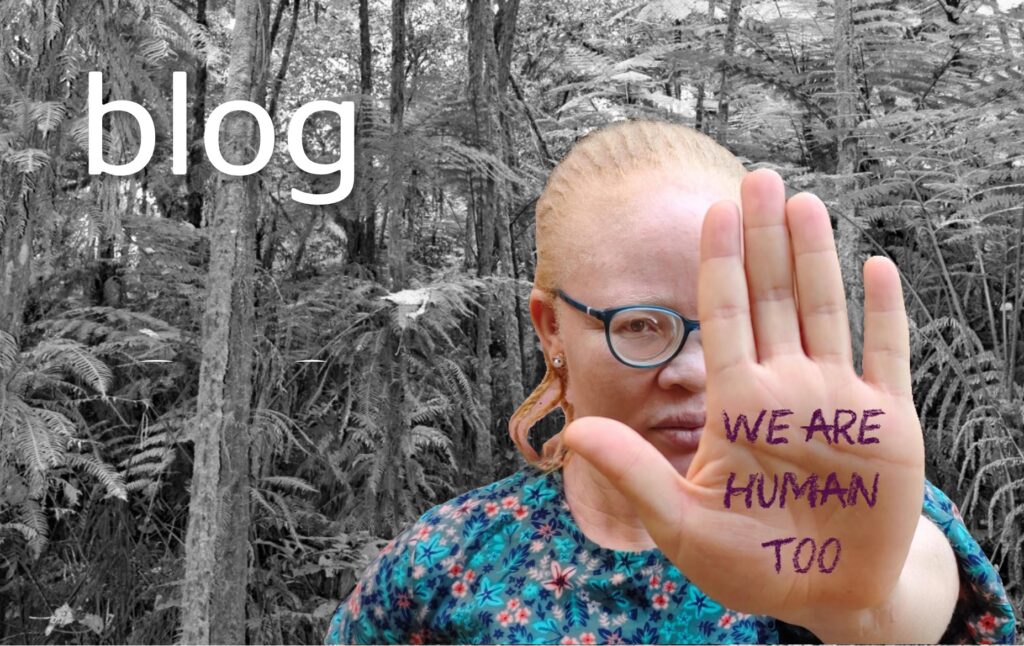Restoration from isolation – Born with albinism, Ifeoluwa faced rejection and isolation. Her mother’s unwavering love protected her from societal prejudices. However, after her passing, living with relatives worsened the isolation and discrimination. Meeting and interacting with parents of children with Albinism, made her understand that she was not alone in facing all these challenges.This gave her the idea to create Ìrètíola (“Hope for Tomorrow” in Yoruba language), a space where children with Albinism can find their new identity, where they can learn how to care for themselves and live independent lives when they grow up.
By Ifeoluwa Faniran:
The Cruelty of Rejection
“I want to go and play with other children!”
“No, you can’t.”
“I want to become a Nurse!”
“No, you can’t!”
This is the response I always heard right from my childhood. I used to stay in a room for days without going out because of the way I looked.
Being born with albinism as the fifth child among six siblings in South-West Nigeria made me the odd one. “When I gave birth to you in the hospital, I thought the nurses had exchanged my real child for you! I couldn’t imagine having a child like you! I was scared to touch you and breastfeed you.” my mother said. But despite her lack of knowledge about albinism, she accepted me as her beloved baby even when everyone had a different opinion.
A Childhood Marred by Misconceptions about Albinism
I grew up hearing people making hurtful remarks about my mother. They accused her of infidelity or theft. Some even believed that God was punishing her for her previous sins. My mother sacrificed everything to ensure my safety. After my father left us (I, being one of the reasons) it became difficult for my mother to take care of us; therefore, my siblings had to live separately with other relatives.
There were occasions when people would tell my mother to sell my hair or my nails to them or advise her to use me for money rituals. Nigerian media sometimes portrays individuals with albinism as ghosts who possess special powers with body parts that bring good luck. The atrocities like the hunting of PWAs in east and southern Africa were all over the news and this gave them ideas. These misconceptions and acts created fear in my mother, keeping me indoors and not allowing me to play with my peers, thinking that was the best way to protect me.
Education Delayed, Spirit Unbroken
Therefore, I started primary school much too late, only at the age of nine, unlike my other siblings.
I had a teacher who found it difficult to connect with me as her student. She would often say that I looked scary. Fellow students would call me different names, such as Afin Boro (White ghost) and sometimes hide my stuff, forcing me to search for it. They even made me dance while singing abusive songs directed at me. All these made me upset.
A Mother’s Unconditional Love
My mother was my source of comfort during that time. She would embrace me, help me with my homework, share Bible stories with me, and ensure that I would learn household chores. It was just my mother and me until she passed away in the year 2006.
Soon I moved in with my sister, but the situation grew worse. Under the guise of protecting me and to avoid unnecessary questions from people, I was always kept indoors to clean the house.
Despite all this, I never hated my identity. I enjoyed being myself. There were times when I wanted to learn fashion design or acting after school hours just like others or express my thoughts to my siblings of becoming a Nurse, all I would hear from them is, “Is it appropriate for someone like you?” or “Do you belong there?” And when I pressed further, they labelled me as being stubborn and ungrateful. I lost enthusiasm in talking with my siblings.

Light on the horizon
I gained my freedom in 2020 when my sister’s family relocated to the US, and I had to stay alone in their house. Then I began to volunteer as an aide for people with disabilities who required assistance, attended workshops, training sessions, various disability-related meetings, and engaged in disability advocacy. One day, I met someone who introduced me to The Albino Foundation, where I met parents and other individuals with albinism.
From my interactions with them, I realized that children with Albinism still suffer from ridicule, parental neglect, and domestic abuse as their parents still believe in misconceptions surrounding Albinism and have no adequate information on handling the consequences that Albinism brings. Moreover, they are still facing bullying and discrimination from society, their peers, and teachers at school.
Restoration from isolation – Hope for Tomorrow
As a child, I often imagined a world where all children became advocates for persons with albinism to ensure access to equal rights and help create a society without discrimination.
This would be possible through the initiatives of Ìrètíọla.
Ìrètíọla (meaning Hope for Tomorrow) is an NGO working with children/youth with Albinism, aged 0 to 18 years.
We train them to overcome challenges, dispel misconceptions, and ensure they have equal opportunities for a fulfilling life. We spread awareness, boosting the confidence of children with Albinism, and providing resources to support them.
______________________________________________
Do you, like Ifeoluwa carry a plan for social change? And are you looking for a place to acquire the required skills to start and run your own organisation.
Then check out www.kanthari.org and apply to become a participant in this year’s kanthari impact leadership course that starts in April.



